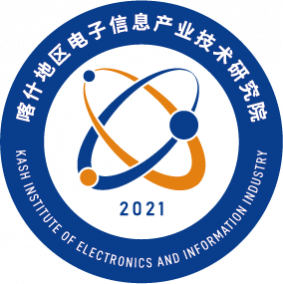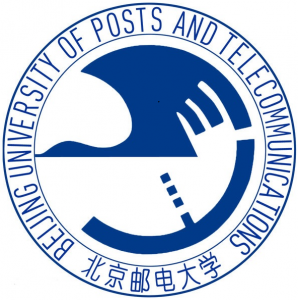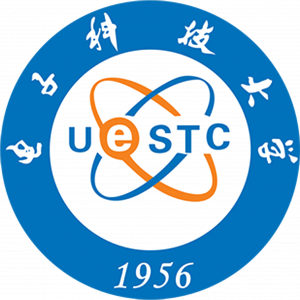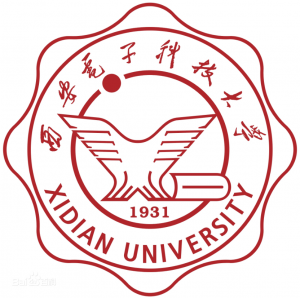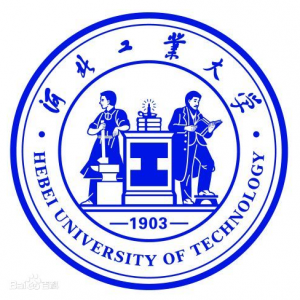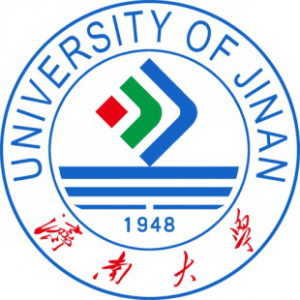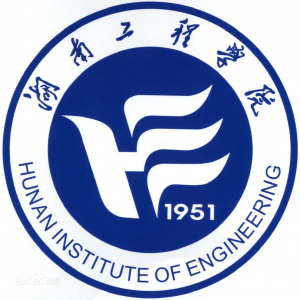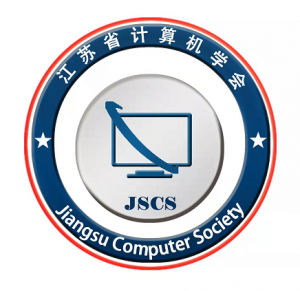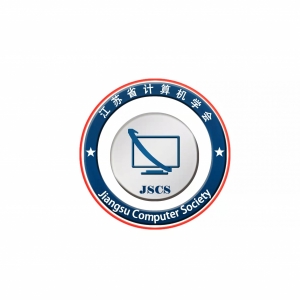Submission
Registration
Prospective Challenge
Important Dates
Full paper submission deadline:
July 19, 2024
Acceptance Notification:
August 10, 2024
Registration deadline:
August 20, 2024
Camera-Ready Paper Due:
September 13, 2024
Conference Date:
October 18-21, 2024NEWS
Social Media
Workshops
+ 查看更多
1. Title:Machine Learning and Optimization for Blockchain based Internet-of-things
Summary:
The concepts of Internet of Things (IoT) are providing services across different sectors including agriculture, healthcare, manufacturing, smart cities, smart supply chain, industrial internet and automobile. However, security becomes a major concern in IoT environment, which is important to address before widely deploying the IoT services. Bloackchain is a capable technology that provide transparent, traceable and high level security without being dependent on centralized body. The blockchain technology perfectly fit to the architecture and features of IoT systems. However, the blockchain is still a novel concept and face many challenges specifically related to integration and universal adoption, legal and regulatory status issues, availability, safety, privacy and efficiency. The given challenges motivate us to explore various possible solutions for the secure IoT environment. Machine Learning and Optimization come into play as the leading solution strategies recently. This workshop is concerned with the Machine Learning and Optimization techniques addressing various tasks in blockchain based IoT.
Keywords:
Internet of Things, Machine Learning, blockchain
Chair:
Dr. Arif Ali Khan, Nanjing University of Aeronautics and Astronautics, China

Arif Ali Khan is working as an Associate Professor with the College of Computer Science and Technology, Nanjing University of Aeronautics and Astronautics, China. He received B.S. degree in Software Engineering from the University of Science and Technology, Bannu, Pakistan and M.Sc. in Information Technology from Universiti Teknologi Petronas, Malaysia. He obtained Ph.D. degree in Software Engineering from the Department of Computer Science, City University of Hong Kong. He has participated in and managed several empirical software engineering related research projects. Dr Khan has expertise in multi-criteria decision analysis, global software development, process improvement, 3C’s (communication, coordination, control), DevOps, agile software development, requirements change management and evidence-based software engineering. He is professionally active is conducting publication-based research workshops, serving as guest editor in main track software engineering journals and editing research books. He has published over 60 articles in peer reviewed software engineering conferences and journals.
Dr. Mustafa Misir, Istinye University, Turkey

Mustafa Misir is an Associate Professor in Computer Engineering at the Istinye University, Turkey. He received his BSc and MSc degrees in Computer Engineering from the Yeditepe University, Turkey in 2007 and 2008, respectively. He earned his PhD degree in Computer Science from KU Leuven, Belgium in 2012 while working in the Combinatorial Optimisation and Decision Support (CODeS) Research Group. He is an expert on Automated Algorithm Design which relates to Machine Learning, Data Science/Analytics and Operations Research. He held many international positions in renowned research institutes including KU Leuven, INRIA, Universite Paris Sud XI, Singapore Management University and University of Freiburg. During this period, he published over 40 papers in international conferences/journals and won several academic awards.
2. Title:Intelligent Internet of Things Technologies and Applications
Summary:
5G networks are widely believed to be the enabler of a broad range of smart applications, such as Smart City, Energy Internet, Smart Agriculture, and so on. The massive Machine Type of Communication (mMTC) of 5G supports up to 1 million device connections per square kilometer, which hence enables high density deployment of a massive number of Internet-of-Things (IoT) devices within a relatively small geographic area. To realize the benefit of 5G in smart applications, Artificial Intelligence (AI) and Edge Computing will play a critical role in implementing and developing the IoT by bringing intelligent computing paradigm and enhancing the quality and performance of the IoT services. It is envisioned that applying AI and Edge Computing technique into mMTC, eMBB and URLLC is a promising approach to solve the scientific and engineering challenges in IoT.
This Special Workshop is to encourage researchers to present their latest work on how AI and Edge computing work together to address the technology and application challenges of IoT.
Keywords:
Internet of Things, Artificial Intelligence, Edge Computing, 5G
Chair:
Dr. Sujie Shao, Beijing University of Posts and Telecommunications, China
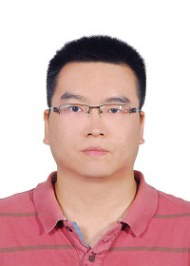
Sujie Shao received the Ph.D. degree from Beijing University of Posts and Telecommunication, in 2015, Beijing, China. He is currently a lecturer in State Key Laboratory of Networking and Switching Technology, Beijing University of Posts and Telecommunication. His research interests include edge computing, Internet of Things, Smart Grids and communication network management.
A/Prof. Shaoyong Guo, Beijing University of Posts and Telecommunications, China
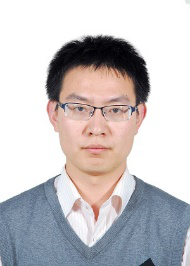
Shaoyong Guo received the Ph.D. degree from Beijing University of Posts and Telecommunication, in 2013, Beijing, China. He is currently an associated professor in State Key Laboratory of Networking and Switching Technology, Beijing University of Posts and Telecommunication. His research interests include Blockchain, Internet of Things, Energy Internet.
3. Title:Computing Intelligence driven Mobile Edge Networks
Summary:
To address the explosive growth of smart devices, applications, and volume of data traffic, computing and caching capabilities are integrated at the edge of cellular networks compounded with other different types of networks. The new architecture of mobile edge network thus comes into being, which brings network functions and contents close to terminal devices and serves network applications with the integrated communication, computing, and caching resources. In such a compounded network environment, conventional manual work or rule-based paradigms are hard to meet the demand for efficient and effective network operation and management. Computing intelligence is deemed to play a key role in enabling the intelligent management and control of mobile edge networks, by adopting the newly developed computing intelligence approaches, such as deep reinforcement learning, graph neural networks, knowledge graph, etc. However, the potential technologies and practical implementation are still in the very early stage, and there are lots of challenging issues need to be identified and resolved.
This special Workshop aims to introduce and highlight the latest developments and emerging research in computing intelligence driven mobile edge networks.
Keywords:
Computing Intelligence, Mobile Edge Networks,Edge Computing, Internet of Things
Chair:
Dr. Fanqin Zhou, Beijing University of Posts and Telecommunications, China

Fanqin Zhou received the Ph.D. degree from Beijing University of Posts and Telecommunication (BUPT), in 2019, Beijing, China. He is currently a postdoctoral fellow with State Key Laboratory of Networking and Switching Technology in BUPT. His current research interests include intelligent network slicing and resource management of mobile edge networks.
Dr. Siya XU, Beijing University of Posts and Telecommunications, China.

Siya Xu, received her Ph.D. degree in communication and information system from Beijing University of Posts and Telecommunications. She is currently a lecturer in State Key Laboratory of Networking and Switching Technology of Beijing University of Posts and Telecommunications. She has published more than 30 EI/SCI index papers in Network Management, AI, SDN, and Edge Computing.
4. Title:Multidisciplinary and artificial intelligence integration and application
Summary:
With the surge of information, communication and electronic equipment in the future, people 's interest in information and data processing in various fields is growing rapidly, so multi-form information and data processing technology is becoming the core part of daily life. In this context, Internet topology analysis has caused a research boom in computer science, physics and mathematical science. Distributed machine learning is also a rapidly developing interdisciplinary field, integrating distributed systems, networks and machine learning technologies. Artificial intelligence and quantum computing will also play a key role in the implementation and development of the Internet, bringing intelligent computing paradigms and improving the quality and performance of Internet services. Developing a common language foundation that can promote interdisciplinary collaboration among researchers, identifying information and information infrastructure needs to support aggregation research. By adopting emerging computational intelligence methods, such as quantum computing, deep reinforcement learning, graph neural networks, and knowledge graphs, seminar activities will promote interdisciplinary dialogue and the rapid development of various information technologies.
This Workshop aims to present and highlight the latest developments and emerging research in multidisciplinary integration such as quantum computing, artificial intelligence, machine learning and applications of artificial intelligence in materials science.
Keywords:
Artificial Intelligence, Quantum Computing, Multidisciplinary Integration, Internet
Chair:
Dr. Desheng Zheng, Southwest Petroleum University, China
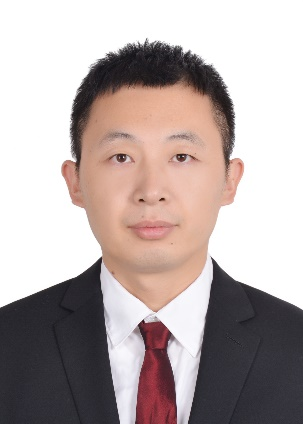
Desheng Zheng received the Ph.D. degree from University of Electronic Science and Technology of China, in 2014, Chengdu, China. He is currently the master tutor of Southwest Petroleum University. His research interests include Cyberspace Security, Artificial Intelligence, Industrial Internet of Things.
Prof. Shunkun Yang, Kash Institute of Electronics and Information Industry of China, China
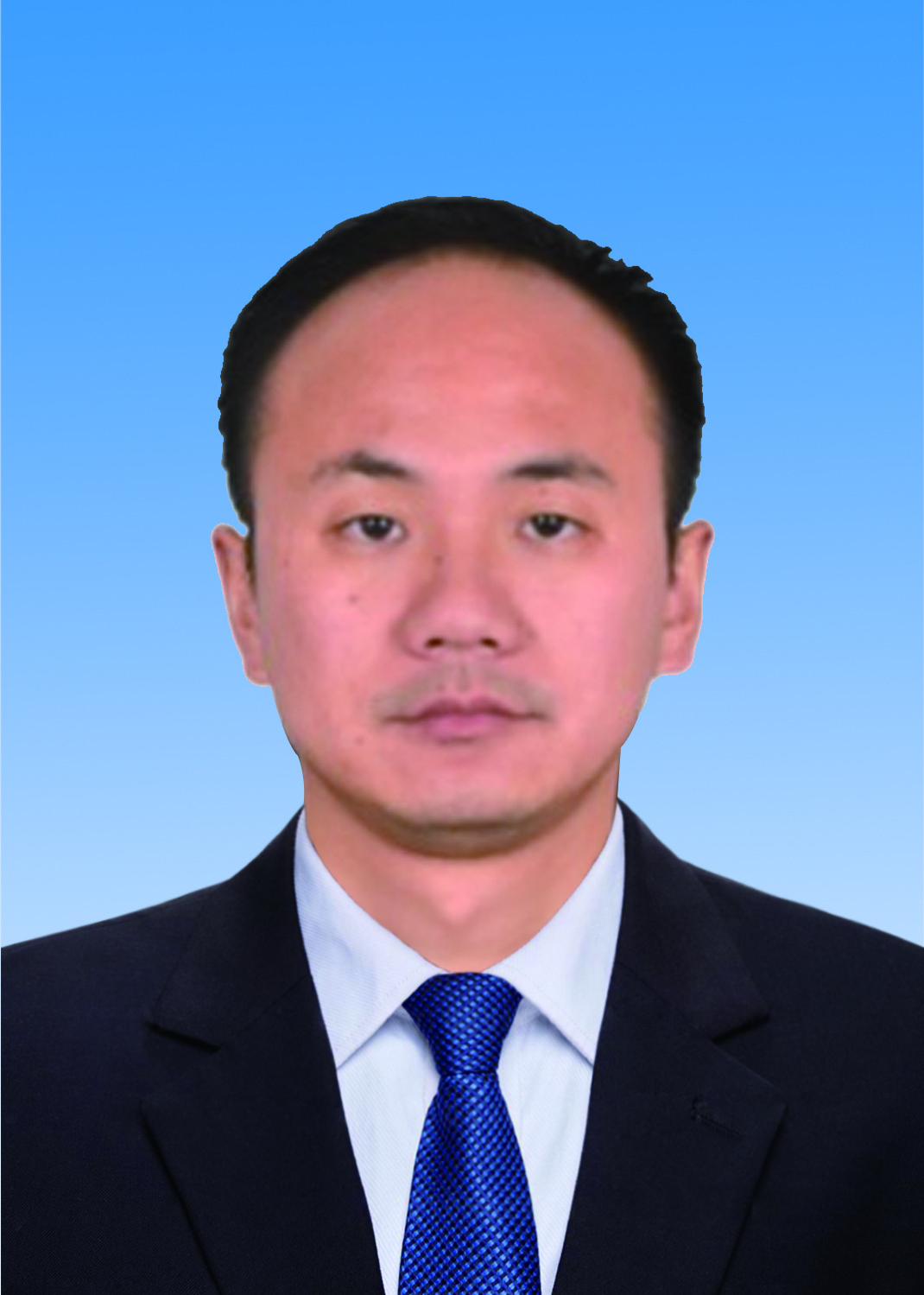
Shunkun Yang received the master's degree from University of Electronic Science and Technology of China in 2013. He is the executive president of Kash Institute of Electronics and Information Industry of China. His research interests include network security, communication anti-interference and artificial intelligence.
5. Title:Information and Data Processing
Summary:
We have witnessed fast developments of various information technologies, and many forms of information and data processingtechnologies are becoming core parts of our daily lives. With the proliferation of future information, communication, and electronic devices, there is a fast growing interest in information and data processing. Thisworkshop promotes their transfer into practical applications, for developing intelligent information and data processing for contents, platforms, networks and devices. This workshop aims at addressing advances in research on information and data processing, covering topics ranging from technology issues to applications for information and data processing. This workshop solicits original, unpublished contributions in all aspects of information and data processing. Submitted articles must not be concurrently considered elsewhere for publication. We also encourage authors to submit short papers on the early stages of research or development in progress, which present important new challenges. Position papers on new idea and industry papers are also welcome.
Keywords:
Information and Communications Technology, Informaiton processing, Data processing.
Chair:
Dr. Yongkai Fan ,Communication University of China, China
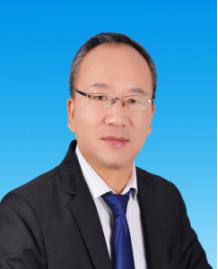
Yongkai Fan received the Bachelor, Master and Ph.D. degrees from Jilin University, Changchun, China, in 2001, 2003, and 2006. From 2006 to 2009, he was an assistant researcher at Tsinghua University, Beijing. He was a visiting scholar in the Department of Computer science and Engineering at Lehigh University in the USA ( 201508-201601 ) and was a visiting scholar in the Department of Computer Science and Engineering at Penn State University in the USA (201602-201608). Dr. Fan is the session chair of Workshop on Big data and machine learning for security in ICCCN 2020, and he is one of the Technical Program Committee in the Joint Workshop on CPS&IoT Security and Privacy in ACM Conference on Computer and Communications Security 2020. His current appointment is an associate professor at the Communication University of China, and his current research interests include theories of software engineering and software security. He has published more than 50 journal/conference papers in journals such as IEEE Transactions on Industrial Informatics, Information Sciences, Future Generation Computer Systems, Computer&Security, and others. His current research interests include theories of software security,AI security and IoT security.
Prof. Yunfei Yi,Hechi University, China
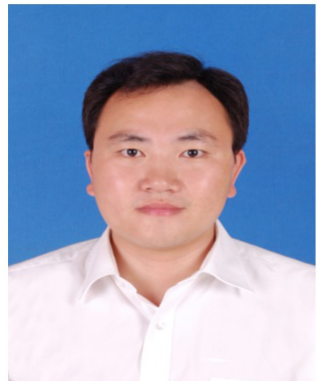
Yunfei Yi received the ph.D. degrees in Computer software and theory from Wuhan University, Wuhan,China,2015.He is currently a professor with the College of Computer and Information Engineering, Hechi University, Yizhou,China. His research interests include natural computation, machine learning, etc.
Prof. Dong-hong Qin,President of Nanning Branch of China Computer Federation
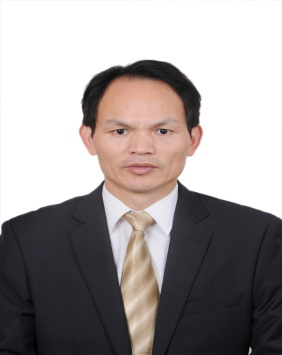 Dong-hong Qin received the Ph.D. degrees from Tsinghua University, Beijing, China. He was a visiting scholar in the College of Information and Computer Sciences of University of Massachusetts Amherst in the USA. Prof. Qin is now the President of Nanning Branch of China Computer Federation, and he was the executive chairman of 1stChina-ASEAN Forum on Computer Science, Technology Development and Cooperation in 2019. His current appointment is a professor at the school of artificial intelligence of Guangxi University for Nationalities, and his current research interests include big data, natural language processing, and machine translation on the ASEAN languages. He has published more than 60 journal/conference papers in journals such as IEEE wireless communication and Journal of Internet, and others.
Dong-hong Qin received the Ph.D. degrees from Tsinghua University, Beijing, China. He was a visiting scholar in the College of Information and Computer Sciences of University of Massachusetts Amherst in the USA. Prof. Qin is now the President of Nanning Branch of China Computer Federation, and he was the executive chairman of 1stChina-ASEAN Forum on Computer Science, Technology Development and Cooperation in 2019. His current appointment is a professor at the school of artificial intelligence of Guangxi University for Nationalities, and his current research interests include big data, natural language processing, and machine translation on the ASEAN languages. He has published more than 60 journal/conference papers in journals such as IEEE wireless communication and Journal of Internet, and others.6. Title:Embedded Computing and Information Security
Summary:Embedded computing systems are designed to a wide range of competing criteria that have given rise to several different fields. On the one hand, they must perform increasingly complex tasks. On the other hand, embedded systems must meet tight cost, power consumption, and performance constraints. Information security is the practice of preventing unauthorized access, use, disclosure, disruption, modification, inspection, recording or destruction of information. The information or data may take any form, e.g. electronic or physical. Information security’s primary focus is the balanced protection of the confidentiality, integrity and availability of data while maintaining a focus on efficient policy implementation, all without hampering organization productivity. Machine Learning is an idea to learn from examples and experience, without being explicitly programmed. Instead of writing code, you feed data to the generic algorithm, and it builds logic based on the data given.This special Workshop aims to present and highlight the latest developments and emerging research of Embedded Computing, Cryptography Algorithms, Machine Learning with applications in developing all aspects of image, video, music, texture et.al..
Keywords:
Embedded Computing; Cryptography; Information Security; Machine Learning; Neural Network;
Chair:
Dr.Hui-Huang Zhao, Hengyang Normal University, China
 Dr.Hui-Huang Zhao received his Ph.D. degree in 2010 from XiDian University. He was a Sponsored Researcher in the School of Computer Science and Informatics, Cardiff University. Now he is an Associate Professor in the College of Computer Science and Technology, Hengyang Normal University. His main research interests include Image Processing, Compressive Sensing and Machine Learning.Homepage: http://huihuangzhao.github.io/
Dr.Hui-Huang Zhao received his Ph.D. degree in 2010 from XiDian University. He was a Sponsored Researcher in the School of Computer Science and Informatics, Cardiff University. Now he is an Associate Professor in the College of Computer Science and Technology, Hengyang Normal University. His main research interests include Image Processing, Compressive Sensing and Machine Learning.Homepage: http://huihuangzhao.github.io/
 Dr.Hui-Huang Zhao received his Ph.D. degree in 2010 from XiDian University. He was a Sponsored Researcher in the School of Computer Science and Informatics, Cardiff University. Now he is an Associate Professor in the College of Computer Science and Technology, Hengyang Normal University. His main research interests include Image Processing, Compressive Sensing and Machine Learning.Homepage: http://huihuangzhao.github.io/
Dr.Hui-Huang Zhao received his Ph.D. degree in 2010 from XiDian University. He was a Sponsored Researcher in the School of Computer Science and Informatics, Cardiff University. Now he is an Associate Professor in the College of Computer Science and Technology, Hengyang Normal University. His main research interests include Image Processing, Compressive Sensing and Machine Learning.Homepage: http://huihuangzhao.github.io/Prof. Bin Fu, University of Texas Rio Grande Valley, USA.
P rof. Bin Fu received his Ph.D. degree in 1998 from Yale University. He is a Professor in the Department of Computer Science, University of Texas Rio Grande Valley. His main research interests include Algorithms in Networking and Bioinformatics, Computational Complexity Theory.Homepage: https://faculty.utrgv.edu/bin.fu/
rof. Bin Fu received his Ph.D. degree in 1998 from Yale University. He is a Professor in the Department of Computer Science, University of Texas Rio Grande Valley. His main research interests include Algorithms in Networking and Bioinformatics, Computational Complexity Theory.Homepage: https://faculty.utrgv.edu/bin.fu/
 rof. Bin Fu received his Ph.D. degree in 1998 from Yale University. He is a Professor in the Department of Computer Science, University of Texas Rio Grande Valley. His main research interests include Algorithms in Networking and Bioinformatics, Computational Complexity Theory.Homepage: https://faculty.utrgv.edu/bin.fu/
rof. Bin Fu received his Ph.D. degree in 1998 from Yale University. He is a Professor in the Department of Computer Science, University of Texas Rio Grande Valley. His main research interests include Algorithms in Networking and Bioinformatics, Computational Complexity Theory.Homepage: https://faculty.utrgv.edu/bin.fu/
7. Title:Renewable energy Internet
Summary:Energy is the basis for the survival and development of modern society. In order to cope with the energy crisis, renewable energy such as solar energy, wind energy, and biological energy is widely researched. Renewable energy has inexhaustible, clean and environmentally friendly advantages, while it is geographically dispersed, production discontinuity, random, volatility and uncontrollable.The centralized and unified management of traditional power networks is difficult to adapt to the large-scale use of renewable energy.
Energy Internet is the combination of information technology and renewable energy. It comprehensively uses advanced power electronics, information and intelligent management technology to form a large number of distributed energy harvesting devices, storage devices and various types of loads, which provides a feasible technical solution to the problem of efficient use ofrenewable energy. This special Workshop aims to discuss and present the new findings on various key technologies of Energy Internet to gradually evolve the traditional power grid to Energy Internet.
Keywords:
Renewable energy; Complex network; Power network; Information technique
Chair:
Professor Xi-Zheng Zhang, Hunan Institute of Engineering, China
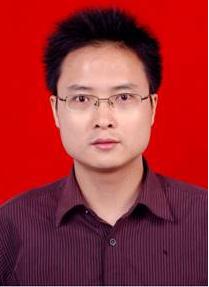 Prof. Zhang received his B.s.c, M.s.c, and Ph.D. degreefrom Hunan University in 2000, 2003, and 2010, respectively. Now he is an Professor in the School of Electrical and Information Engineering, Hunan Institute of Engineering. His main research interests include Renewable Energy, Intelligent Optimization,and Control System.
Prof. Zhang received his B.s.c, M.s.c, and Ph.D. degreefrom Hunan University in 2000, 2003, and 2010, respectively. Now he is an Professor in the School of Electrical and Information Engineering, Hunan Institute of Engineering. His main research interests include Renewable Energy, Intelligent Optimization,and Control System.8. Title:Next-Generation Networking and Internet Security & Applications
Summary:The next-generation networking and Internet will bring many new challenges and opportunities due to their sensitivity, complexity and advance involved many booming fields, thereby requiring highly adaptive techniques. Following emerging topics are of particular importance to the next generation networking and Internet,such as next-generation communication, data security, Internet of Things, satellite constellation networks, digital economy, e-health, automatic driving, robotics. Furthermore, many salient issues are affecting next-generation networking and Internet, including software-defined network, blockchain, network function virtualization, cloud and fog computing, artificial intelligence, spectrum expansion, resource management, self-organization, energy efficiency operations, mobile edge computing, mobility management, indoor localization, and so on. Networking and Internet have been an indispensable part of daily life and works, however, the next-generation networking and Internet is unprecedentedly changing life and society.
This workshop solicits unpublished research works related to the latest challenges, technologies, solutions and fundamentals in the broad area of next-generation networking and Internet, including technologies, theories, services, architectures, and protocols.
Keywords:
Next-generation networking and Internet, Next-generation communication, Data security, Internet of Things, Satellite constellation networks
Chair:
A/Prof. Fei Zheng, Guilin University of Electronic Technology, China
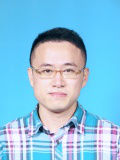
Fei Zheng received the Ph.D. degree from Beijing University of Posts and Telecommunication, in 2018, Beijing, China. He is currently an associated professor in Ministry of Education Key Laboratory of Cognitive Radio and Information Processing, Guilin University of Electronic Technology. His research interests include cellularnetworks, satellite constellation networks, powercommunication networks.
Dr.Zou Zhou, Guilin University of Electronic Technology, China
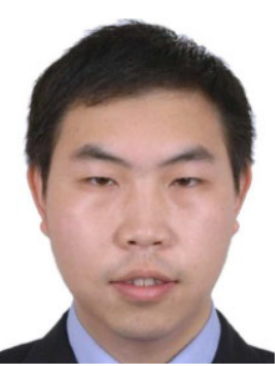 Dr. Zou Zhou is an associate professor/senior engineer of Guilin University of Electronic Technology, China. He received the B.S. degree from Huazhong University of Science and Technology, Wuhan, China, in 2002 and the Ph.D. degree at the same university in 2007. From 2008 to 2010, he was a postdoctoral researcher in South China University of Technology,Guangzhou, China. His research interests include distributed swarm intelligence, wireless communication and indoor positioning.
Dr. Zou Zhou is an associate professor/senior engineer of Guilin University of Electronic Technology, China. He received the B.S. degree from Huazhong University of Science and Technology, Wuhan, China, in 2002 and the Ph.D. degree at the same university in 2007. From 2008 to 2010, he was a postdoctoral researcher in South China University of Technology,Guangzhou, China. His research interests include distributed swarm intelligence, wireless communication and indoor positioning.10. Title:Cyber Security with Big Data
Summary:Cyberspace and its underlying infrastructure are vulnerable to a wide range of risk stemming from both physical and cyber threats and hazards. In light of the risk and severe consequences of cyber events, strengthening the security and resilience of cyberspace has become an important security mission. Moreover, the advent of big data provides a more powerful and intelligent way of defending against the risk in cyberspace than ever before. Hence, the Workshop on Cyber Security with Big Data (CSBD) aims to provide a forum for researchers and practitioners from academia and industry to exchange their latest research findings, novel ideas, and valuable comments regarding cyber security with big data. Its major concerns include cyber security theories, system design and implementation for cyber security, big data service for cyber security, artificial intelligence security, blockchain service for cyber security and emerging cyber security applications. The workshop program will consist of oral presentation sessions, where each presenter will show his/her work followed by Q/A, and an open discussion session.
Keywords:
Cyber Security, Big Data, Artificial Intelligence, Blockchain
Chairs:
Prof. Jieren Cheng, Hainan University, China
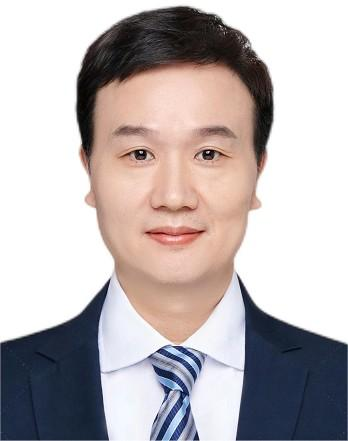
Jieren Cheng received his Ph.D. degree in Computer Science and Technology from National University of Defense Technology (NUDT) in 2010. He is now a Professor and the Associate Dean, and Doctoral Supervisor of School of Computer Science & Technology in Hainan University, China. He is awarded as Hainan Leading Talents, Nanhai Famous Talents, 515 Project Second-level Talents, High-level D Talents, etc. He won the second prize of Hainan Science and Technology Progress, including "Key Technology of Large-scale Network Security situational awareness and its Application (first place)", Hainan Provincial Leading Talents, Nanhai Famous Talents , and the Second prize of Teaching Achievements of Hainan Province in 2022 He founded the journal Journal of Blockchain and Intelligent Computing (Blockchain and Intelligent Computing) with Tech Science Press Press and served as the associateeditor.He is currently the director of the Hainan Province Blockchain Technology Engineering Research Center, the deputy director of the Hainan Province Internet Search Key Laboratory, the National Natural Science Foundation of China review expert, the Ministry of Education higher education teaching evaluation expert, Hainan Provincial Information Consulting Expert, Zhejiang Science and Technology Review and Consulting expert, member of China Computer Theory Committee. He also serves as the chairman of the ICCCS2018, FAW2020,CSS2020 PriCom2022 and CENet2022. His research interests include blockchain, big data, cloud computing, cyber security, artificial intelligence and intelligent transportation. He is a senior member of CCF and a member of IEEE. He has been invited to serve as the reviewer in several journals and international conferences, e.g.,IEEE Transactions on Neural Networks and Learning Systems, Neurocomputing, Computer Research and Development, Computer Science, FAW, ICCCS, CSS, ICAIS and a PC member for several international conferences. In recent years, as the main project leader, he hosted four National Natural Science Foundation of Chinaand national defense key research projects, he hosted more than 10 China-US Computer Science Research Center Open Project, Ministry of Education Industry-University-Research Collaborative Education Project, Ministry of Education "Tiancheng Huizhi" Innovation and Education Fund, Hainan Province Key, R&D innovation team projects, Hainan Provincial Key R&D Projects, Hainan Provincial Natural Science Foundation Projects, Hainan Provincial Science and Technology Enterprise Technology Innovation Fund Projects, and Hunan Provincial Twelfth Five-Year Plan Projects, with a total project funding of more than 10 million. As the main person in charge, he participated in more than 10 national key projects, including the National Natural Science Foundation of China, the National Defense Preliminary Research Key Project, the National Support Plan, and the Innovation Planning Project of the Ministry of Public Security. He has won 22 provincial-level projects and 11 school-level projects such as the Provincial Natural Science Foundation, the Provincial Science and Technology Plan Fund, and the Provincial Department of Education Key Project. In recent years, he published more than 200 academic papers, and 52 papers have been included in SCI, including more than 30 papers in the first area of JCR, more than 103 papers in EI, and 1 high-cited paper (1%) by ESI, achieving a high ESI score in Hainan University’s electronic information category. In addition, he has 33 software copyrights, 12 authorized invention patents, and 3 academic monographs published.
Prof. Xinwang Liu, National University of Defense Technology, China
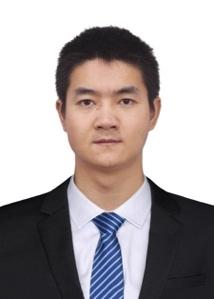 Prof. Xinwang Liu is a professor and doctoral supervisor of the School of Computer Science, National University of Defense Technology, winner of the National Natural Science Foundation Outstanding Youth Fund, and Chief scientist of the Key Researchand Development Program of the Ministry of Science and Technology.His main research interests include accounting method, multi-view clustering algorithm, deep clustering, etc. He has published more than 100 IEEE Trans and CCF Class A papers, including IEEE T-PAMI, IEEE T-KDE, IEEE T-IP, NuerIPS, CVPR, ICCV, AAAI, IJCAI, etc.Google academic citations more than 8,000 times, 3 articles entered the top 10% level of ESI computer science discipline. Senior Program Committee member of AAAI 2020, IJCAI2020-2021 and other top international AI conferences, and Associate Editor of Information Fusion.He presided over or participated in a number of National Natural Science Foundation youth fund projects, and his research achievements won the first prize of Hunan Natural Science.
Prof. Xinwang Liu is a professor and doctoral supervisor of the School of Computer Science, National University of Defense Technology, winner of the National Natural Science Foundation Outstanding Youth Fund, and Chief scientist of the Key Researchand Development Program of the Ministry of Science and Technology.His main research interests include accounting method, multi-view clustering algorithm, deep clustering, etc. He has published more than 100 IEEE Trans and CCF Class A papers, including IEEE T-PAMI, IEEE T-KDE, IEEE T-IP, NuerIPS, CVPR, ICCV, AAAI, IJCAI, etc.Google academic citations more than 8,000 times, 3 articles entered the top 10% level of ESI computer science discipline. Senior Program Committee member of AAAI 2020, IJCAI2020-2021 and other top international AI conferences, and Associate Editor of Information Fusion.He presided over or participated in a number of National Natural Science Foundation youth fund projects, and his research achievements won the first prize of Hunan Natural Science.Dr.Qiang Liu, National University of Defense Technology, China
 Dr. Qiang Liu received his Ph.D. degree in computer science and technology from National University of Defense Technology (NUDT) in 2014. He is now an Assistant Professor at NUDT and a member of IEEE and CCF. His research interests include 5G network, Internet of Things, wireless network security, and machine learning. Dr. Liu has contributed several archived journal and international conference papers, such as IEEE Network Magazine, IEEE Transactions on Wireless Communications, IEEE Transactions on Knowledge and Data Engineering, IEEE Transactions on Cybernetics, Pattern Recognition, IEEE Communications Letters, Neurocomputing, Neural Computing and Applications, Mobile Information Systems, EDBT’17, WCNC’17, ICANN’17, SmartMM’17, etc. He currently serves on the editorial review board of Artificial Intelligence Research journal, and he is a Co-Chair of SmartMM’18.
Dr. Qiang Liu received his Ph.D. degree in computer science and technology from National University of Defense Technology (NUDT) in 2014. He is now an Assistant Professor at NUDT and a member of IEEE and CCF. His research interests include 5G network, Internet of Things, wireless network security, and machine learning. Dr. Liu has contributed several archived journal and international conference papers, such as IEEE Network Magazine, IEEE Transactions on Wireless Communications, IEEE Transactions on Knowledge and Data Engineering, IEEE Transactions on Cybernetics, Pattern Recognition, IEEE Communications Letters, Neurocomputing, Neural Computing and Applications, Mobile Information Systems, EDBT’17, WCNC’17, ICANN’17, SmartMM’17, etc. He currently serves on the editorial review board of Artificial Intelligence Research journal, and he is a Co-Chair of SmartMM’18.Prof. Xiangyang (Alex X.) Liu, Michigan State University, USA
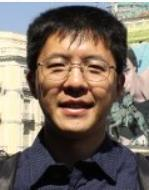 Prof. Alex X. Liu received his Ph.D. degree in Computer Science from The University of Texas at Austin in 2006. He received the IEEE & IFIP William C. Carter Award in 2004, the National Science Foundation CAREER Award in 2009, the Michigan State University Withrow Distinguished Scholar Award in 2011, and Best Paper Award of ICNP. His research focuses on networking and security. Prof. Liu has contributed tens of archived journal papers and more than 100 internationalconference papers, including MOBICOM, INFOCOM, SIGMETRICS, PODC, ICSE, USENIX Security, ICNP, ICDCS, NDSS, DSN, VLDB, ICDE and ACM/IEEE Transactions. He has also edited two books, namely “Firewall Design and Analysis” and “Hardware Based Packet Classification for High Speed Internet Routers”. Prof. Liu has hosted 6 NSF projects, and he served as a program chair or committee member of various top conferences, e.g., SIGMETRICS, INFOCOM, ICNP, ICDCS.
Prof. Alex X. Liu received his Ph.D. degree in Computer Science from The University of Texas at Austin in 2006. He received the IEEE & IFIP William C. Carter Award in 2004, the National Science Foundation CAREER Award in 2009, the Michigan State University Withrow Distinguished Scholar Award in 2011, and Best Paper Award of ICNP. His research focuses on networking and security. Prof. Liu has contributed tens of archived journal papers and more than 100 internationalconference papers, including MOBICOM, INFOCOM, SIGMETRICS, PODC, ICSE, USENIX Security, ICNP, ICDCS, NDSS, DSN, VLDB, ICDE and ACM/IEEE Transactions. He has also edited two books, namely “Firewall Design and Analysis” and “Hardware Based Packet Classification for High Speed Internet Routers”. Prof. Liu has hosted 6 NSF projects, and he served as a program chair or committee member of various top conferences, e.g., SIGMETRICS, INFOCOM, ICNP, ICDCS.11. Title:Public Security and Artificial Intelligence
Summary:
With the continuous maturity of artificial intelligence (AI) and the enrichment of application scenarios, AI provides a new idea to solve public security problems, and the shift from post-governance to pre-warning will become one of the major development trends of public security in the future. At present, AI has been widely used in public security, such as crime investigation, traffic monitoring, natural disaster monitoring, network security, environmental pollution monitoring and other fields. The public security faces many challenges specifically related to efficient analysis, modeling, and prediction with the explosive growth of monitoring data and network data. In addition, those data contain rich semantic information, and how to obtain the valuable information we need from these large amounts of monitoring data and network data is also an important research direction in the field of artificial intelligence. The workshop aims to provide an excellent forum to meet and discuss various important issues on artificial intelligence methods for image and video analysis, pattern recognition and computer vision, dimensional analysis of network data, cyberspace analysis, and applications of image and network analysis.
Keywords:
Image Processing, Network Security, Machine Learning
Chairs:
Dr. Ye Li, University of Electronic Science and Technology of China, China
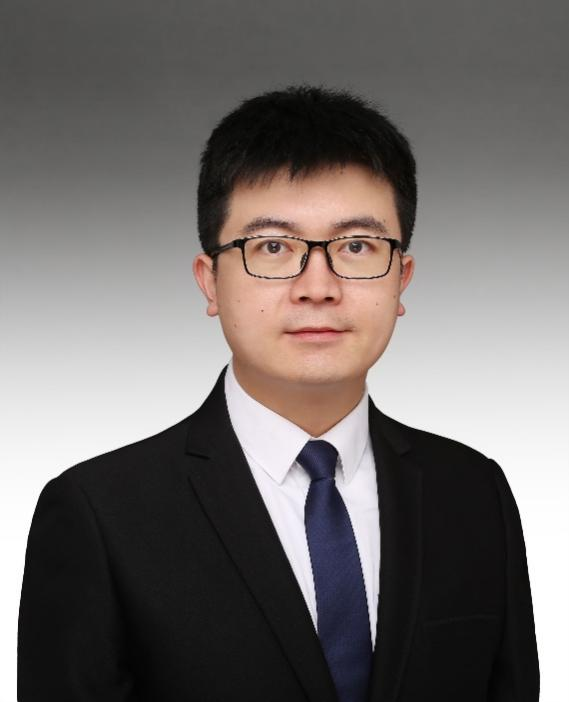
Ye Li is working as a Associate Professor with the College of Software Engineering, University of Electronic Science and Technology of China. He has presided over 1 Natural Science Fund project of Xinjiang Uygur Autonomous Region, participated in 2 SKRD Programs, 1 JKW173 program, and 1 State Natural Science Fund project. He won the first prize of Xinjiang Uygur Autonomous Region Science and Technology Progress Award in 2021. Dr. Li has expertise in computer vision and applications, network security and artificial intelligence. He has published over 17 articles ininternational conferences/journals and obtained 11 authorized national invention patents.
Prof. Fan Zhou, University of Electronic Science and Technology of China, China
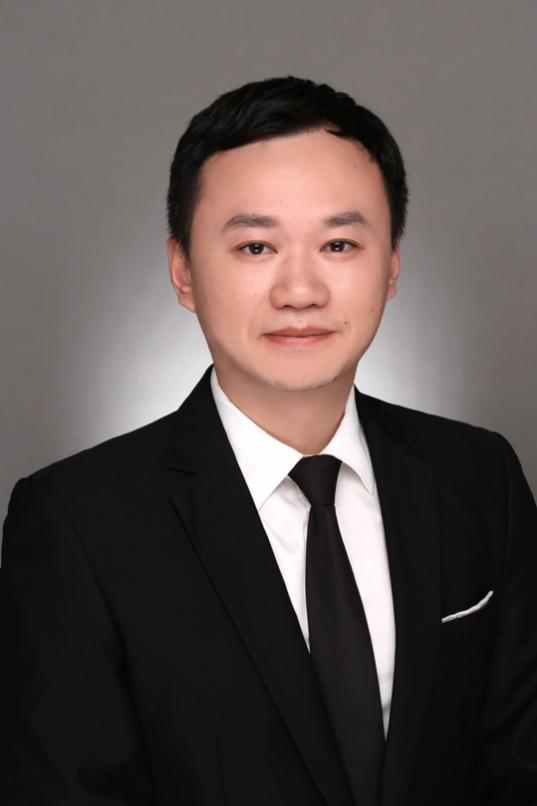
Fan Zhou is currently a full Professor at the School of Information and Software Engineering, University of Electronic Science and Technology of China. His research interests include machine learning, spatiotemporal data management, and social network knowledge discovery. He has published over 200 peer-reviewed papers in prestigious conferences and journals, covering areas such as social media, artificial intelligence, network analysis, and information systems. Prof. Zhou has served on the program committees of numerous top-tier conferences, including NeurIPS, ICML, ICLR, KDD, SIGIR, WWW, AAAI, ACL, CIKM, etc.
12. Title:Applications and Innovations in Quantum Computing, Artificial Intelligence and CCUS
Summary:
Quantum computing and artificial intelligence (AI) are two transformative technologies that are driving significant advancements and innovations across various fields. Quantum computing, by harnessing the principles of quantum mechanics, offers the potential to solve complex problems that are beyond the capabilities of classical computers. This quantum advantage opens up new possibilities for tackling grand challenges and revolutionizing industries.
Meanwhile, AI continues to push the boundaries of what is possible, with ongoing innovations in algorithm design, data representation, and model optimization. These advancements are enabling the development of more intelligent, efficient, and autonomous systems that can learn, adapt, and make decisions in complex environments.
The intersection of quantum computing and AI presents an exciting frontier for innovation. By integrating quantum algorithms with AI techniques, researchers and practitioners are exploring new ways to enhance the performance, scalability, and capabilities of AI systems. Quantum-inspired algorithms and quantum machine learning are emerging as promising approaches to tackle the limitations of classical AI and unlock new possibilities.
This workshop aims to explore the latest advancements, real-world applications, and innovative prospects in quantum computing, AI, and their convergence. It will bring together leading experts from both fields to foster interdisciplinary collaboration, knowledge sharing, and the development of new strategies to leverage these technologies for maximum impact.
The workshop will delve into cutting-edge research, case studies, and best practices, highlighting the ways in which quantum computing and AI are driving innovation and breakthrough applications across various industries. From healthcare and finance to manufacturing, logistics, energy, materials science, and cybersecurity, the power of quantum computing and AI is being harnessed to solve complex problems, optimize processes, and create new opportunities.
Keywords:
Artificial Intelligence, Quantum Computing, Carbon Capture Utilization and Storage (CCUS), Industry Applications.
Chairs:
Dr. QinshengZhu, University of Electronic Science and Technology of China, China

QinshengZhu received the Ph.D. degree from Sichuan University, in 2008, Sichuan, China. Visiting scholar, Center of Advanced Science and Technology Engineering for Carbon, Case Western Reserve University, USA, in 2013-2014. He is currently an associate professor and master tutor of University of Electronic Science and Technology of China. Executive Member of the Quantum Computing Professional Committee of the Chinese Computer Federation. Xinjiang Kashi Regional Think Tank Expert. Member of the Chinese Physical Society and the China Computer Federation. Member of the Quantum Information Network Industry Alliance. Expert of the China Standardization Committee. His research interests include Artificial Intelligence, Quantum information, Quantum Computation, Quantum Machine Learning, Carbon Materials Science.
Dr. Hao Wu, University of Electronic Science and Technology of China, China

Hao Wu received the Ph.D. degree from University of Science and Technology of China, in 2008, Hefei, China. He is currently an associate professor and master tutor of University of Electronic Science and Technology of China. His research interests include Artificial Intelligence, Quantum Computation, Quantum Machine Learning.
Dr. Yi-Chang Li, China University of Petroleum-Beijing at Karamay, China
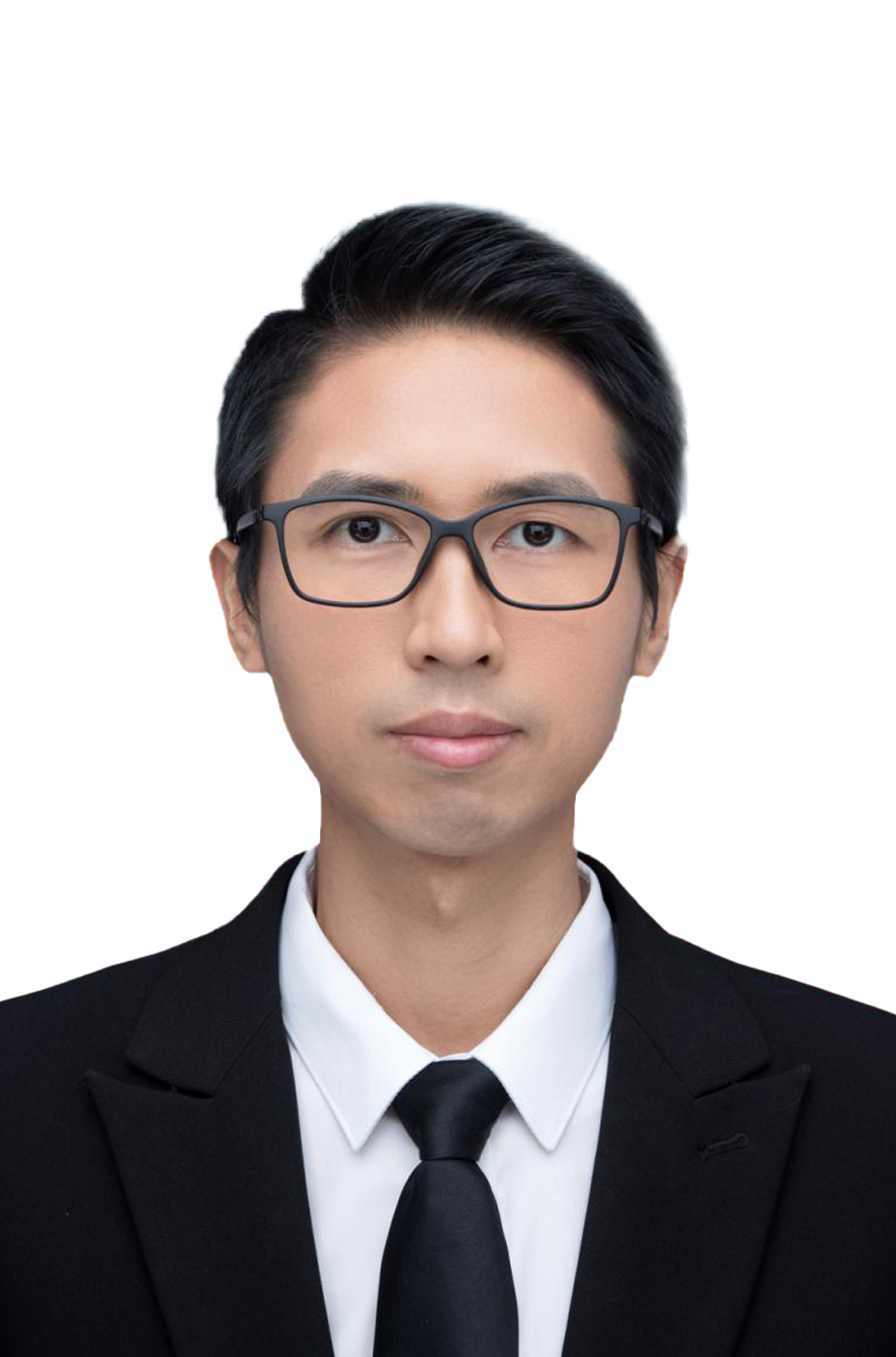
Yi-Chang Li received the Ph.D. degree from Hanyang University, in 2017, South Korea. He is currently the director of the Digital Intelligent Oil and Gas Geology CCUS Innovation and Entrepreneurship Laboratory, and assistant professor in China University of Petroleum-Beijing at Karamay. He is also awarded the title of an Outstanding Innovative Young Talent in Karamay City, and a leading talent of the 'Tianchi Talent' program in Xinjiang Uygur Autonomous Region. His research interests include Carbon Capture Utilization and Storage (CCUS), blockchain, Web3, smart grid, Asset Administration Shell (AAS) and quantum artificial intelligence.
WeiDong Qian, Professor of Engineering, China Ship Scientific Research Center, China
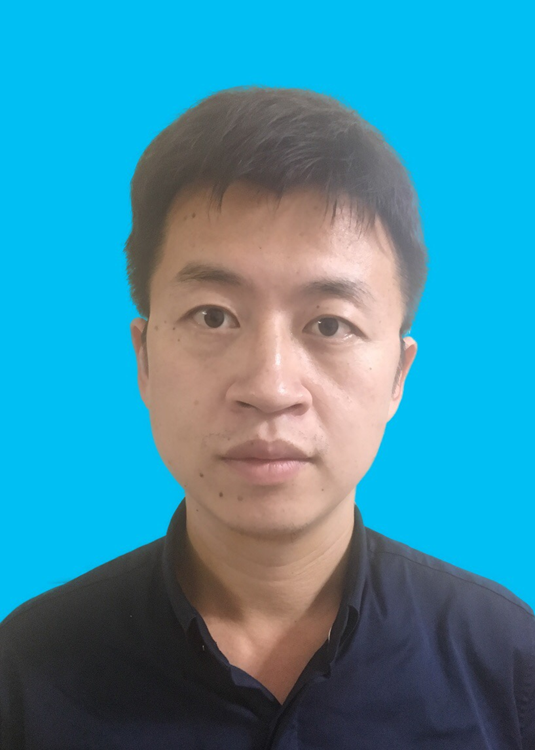
WeiDong Qian, Professor of Engineering, China Ship Scientific Research Center. Engaged in research on virtual experimental technology and CAE software development. As the project leader, he has hosted more than ten high-tech ship research projects sponsored by the Ministry of Industry and Information Technology, the Ministry of Science and Technology's Deep Sea Key Technology and Equipment Special Project, the National Defense Basic Research Program, the Hydrodynamics Preliminary Research Program, and various fund projects. His research areas include industrial software, blockchain and artificial intelligence.
13. Title:Intelligent Information Processing Technology and Applications
Summary:
Advances in artificial intelligence have provided new solutions to information processing and boosted the development of intelligent information processing (IIP) applications. Intelligent information processing is a frontier and a hot topic that enjoys a promising future in the domain of signal and information technologies. Based on the theory of artificial intelligence, IIP technology deals with smart processing, communication and control of texts, images and audios. This conference aims to provide a platform for experts and scholars in the field of intelligent information processing at home and abroad to exchange scientific research achievements and explore cutting-edge scientific issues. Meanwhile, this conference is organized to strengthen exchange of ideas among scholars in the field of IIP, reveal challenges and latest progress in related research, build a bridge to connect researchers and enterprises in this field, and promote industry-university-research cooperation.
Keywords:
Artificial intelligence, information processing, intelligent processing
Chairs:
Dr. Xiaoliang Chen, Broadcom Inc., USA
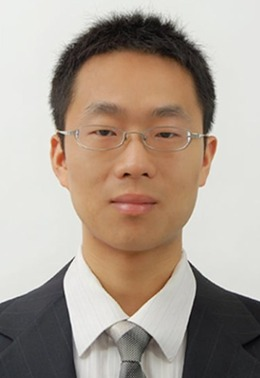
Xiaoliang Chen is working as a senior staff engineer at Broadcom Inc., USA. He received B.S. degreein electrical engineering from Tsinghua University, China and M.Sc. in Computer Science from Peking University, China. He obtained Ph.D. degree in electrical and computer engineering from University of California, Irvine, USA. Since 2013, he has been with Broadcom Inc., Irvine, developing design flow and methodology for analog-and mixed-signal circuits. Since 2020, he has also been a part-time Visiting Scholar with Nanjing University. His current research interests include communication algorithms and chip design, machine-learning hardware accelerator, and electronic design automation.
Dr. Yong-QiangCui, South Central Minzu University, China
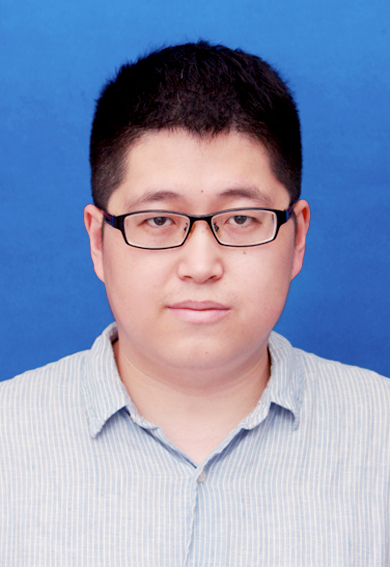
Yong-Qiang Cui is working as anassociate Professor with the College of Electrinics and Information Engineering, South Central Minzu University, China. He received B.S. degree in Electronic Science and Technology from theSchool of Physics,Wuhan University, China. He obtained Ph.D. degree in Circuits and Systems from theSchool of Electronic Information, Wuhan University, China. Dr Cuihas participated in and managed several research projects related to satellite communication and remote sensing technologies. Dr Cui has expertise in Wireless Communications, Information Processing and Distributed Systems. He has published over 30 articles ininternational conferences/journals and won several academic awards.
Dr. JUAN YANG,Shandong Normal University, China

JUAN YANG was born in Linyi, Shandong, China, in 1985. She received the B.S. and M.S. degrees in signal processing from Shandong Normal University, in 2011, and the Ph.D. degree in medical physics from Shandong University, Jinan, in 2015. From September 2012 to September 2014, she was a joint Ph.D. student with Duke University, USA, sponsored by the China Scholarship Council. Since 2015, she has been a Lecturer with the School of Physics and Electronics, Shandong Normal University. She is the author of more than twenty articles, and has given many oral presentations at AAPM meetings. Her research interests include medical image registration, 4D image reconstruction, and image segmentation based on deep learning.
14. Title:Intelligence Edge Network of 6G
Summary:
As the explosive growth of smart devices and the advent of many new applications, traffic volume has been growing exponentially. The traditional centralized network architecture cannot accommodate such user demands due to high communication latency, low coverage, and lagged data transmission. Therefore, mobile edge service is proposed to bring computation and caching resources at the edge of the 6G wireless networks. The combination of wireless networks and edge functionalities endows the 6G wireless networks with powerful data processing and caching capabilities. However, by incorporating communication, computation and caching resources in wireless networks, the allocation and management of communication, computing and caching resources needs to be jointly optimized for improving the quality of service and user experience. Furthermore, the high dynamics in terms of channel conditions, user mobility, and the available computation and caching capabilities make it quite challenging to jointly optimize communication, computing and caching resources while also dealing with time-varying network condition. Artificial intelligence (AI) is an emerging paradigm in which entities and systems are able to learn and make decision by imitating biological processes. Modern machine learning is a key enabler to deal with the problems with uncertain, time-variant, and complex features of 6G,including channel modeling, network optimization, resource management, routing, protocol design, and application/user behavior analysis. This special issue aims to provide a forum for researchers and practitioners from academia and industry to present their latest research findings on the AI- inspired edge communication, caching, and computing for 6G wireless communication and networking
Potential topics include, but are not limited to the following
- AI-based network design and resource allocation for efficient 6G wireless networks
- AI for computation offloading in 6G wireless networks
- AI for edge caching in 6G networks
- Resource management and cross-layer design for AI-based 6G networks
- AI-inspired secure and intelligent resource management in 6G
- Efficient architecture and new protocol design for AI-based wireless networks
- Intelligent data processing, communications, and integration in edge intelligence for 6G
- Efficient resource management for edge intelligence in 6G
- Performance analysis and evaluation for intelligent 6G
- Implementation/Testbed/Deployment for AI-based 6G
Chairs:
Professor Shu Fu, Chongqing University, China
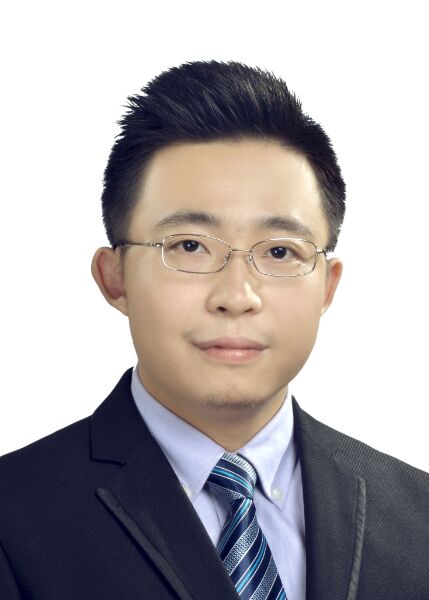
Shu Fu received the Ph.D. degree in communication and information systems from the University of Electronic Science and Technology of China, Chengdu, China, in June 2016, focusing on resource allocation in wireless networks and wavelength division multiplexing (WDM)-based optical networks. He is currently an Associate Professor with the School of Microelectronics and Communication Engineering, Chongqing University, Chongqing, China. His research interests include the next generation of wireless networks, integrated networks, and artificial intelligence.
Associate Professor Yueyue Dai,Huazhong University of Science and Technology, China
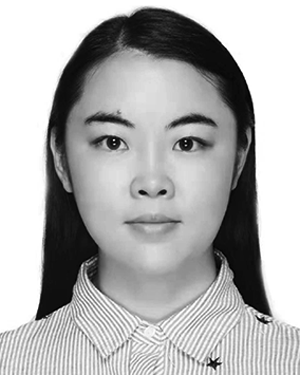
Yueyue Dai (Member, IEEE) received the Ph.D. degree in communication and information system from the University of Electronic Science and Technology of China, Chengdu, China, in 2019.,She is currently an Associate Professor with the School of Cyber Science and Engineering, Huazhong University of Science and Technology, Wuhan, China. Her current research interests include mobile-edge computing, blockchain, and deep reinforcement learning.,Dr. Dai was a recipient of the Excellent Doctoral Dissertation Award from the China Education Society of Electronics in 2020 and the IEEE ICCT Best Paper Award in 2019. She was listed as the World’s Top 2% Scientist by Stanford University in 2021–2023. She serves as an Editor for China Communications. She serves/has served as a Technical Program Committee Member for ICDCS, IWQoS, IEEE ICC, Globecom, and VTC.
15. Title:Intelligent Transport and Security
Summary:
Intelligent transport is based on the Internet of Things platform, combined with big data, building information modeling, virtual reality, digital twins, artificial intelligence, blockchain, edge computing and other technologies, to achieve efficient and convenient transport through information interaction between transport vehicles and between transport vehicles and people. The intelligent transport environment is complex and ever-changing. On the one hand, large-scale data processing suffers from high latency, high load, and high overhead. On the other hand, the privacy of public information is prone to risks such as data loss or information leakage during long-distance transmission. The security of transport vehicles and intelligent devices is easily threatened by both physical and cyberspace. The Intelligent Transport and Security workshop aims to provide a forum for researchers and practitioners in academia and related industries to discuss various important issues in intelligent transport management, key technologies, architecture, design and implementation of intelligent transport network security system, image processing, edge computing, environmental protection, green ship design, traffic pollution prevention, blockchain services, etc.
Keywords:
Internet of Vehicles, ship security, blockchain,image processing, edge computing
Chairs:
Associate Prof. Guifeng Yu, Dalian Maritime University, China
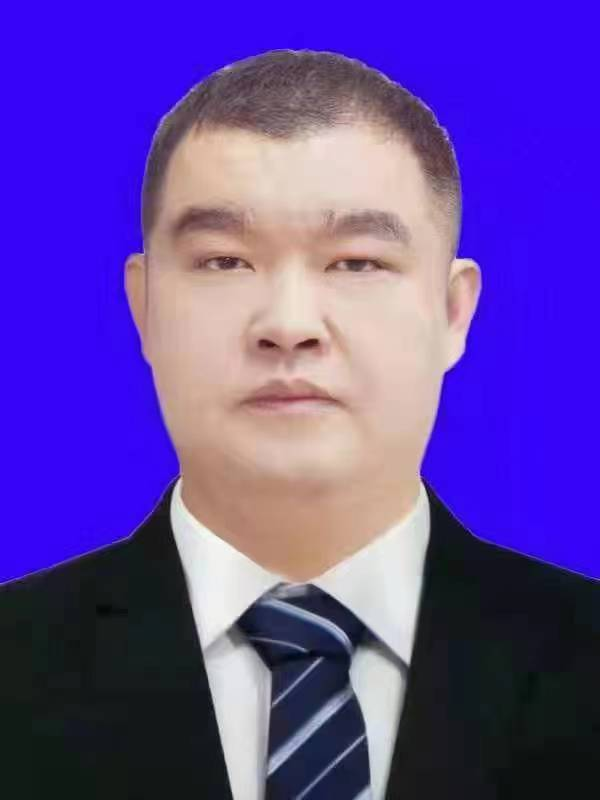
Guifeng Yu, is working as an Associate Professor at Marine Engineering College of Dalian Maritime University. He received bachelor’s degree and master’s degree in Marine Engineering from Dalian Maritime University. As a core member, participated in research projects such as the National Youth Science Foundation, Ministry of Transport, and Dalian Maritime Safety Administration. He is currently engaged in research on ship security and pollution control and have been engaged in research on the impact of ship pollution leakage and ship security control for a long time.
Dr. Bingnan Liang, Dalian Maritime University, China
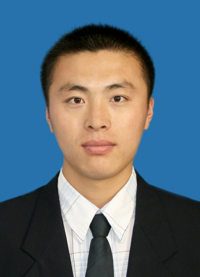
Bingnan Liang received the Ph.D. degree in Marine Engineering from Dalian Maritime University. He is working as a lecturer at Marine Engineering College of Dalian Maritime University. His research interests include marine engineering and green ship.
Associate Prof. Wenbin Bi, Dalian Neusoft University of Information, China
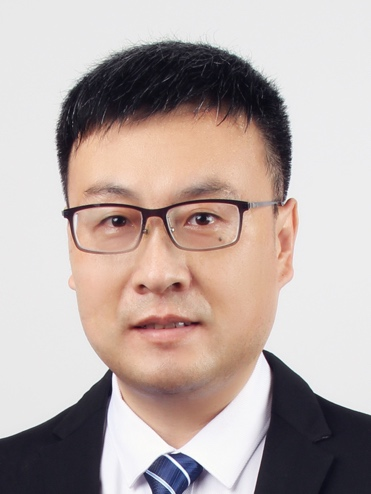
Wenbin Bi, is working as an Associate Professor at Dalian Neusoft University of Information. He received the bachelor's degree in Automatic Control from Dalian Maritime University and the master's degree in Control Theory and Control Engineering from Dalian University of Technology. His research interests include Internet of Vehicles and Blockchain.
Associate Prof. Fang Yu, Qingdao Binhai University, China

Fang Yu, is working as an Associate Professor at Qingdao Binhai University. She received the master's degree in Control Theory and Control Engineering from Dalian University of Technology, Dalian, China. Her research interests include Data Security and Blockchain Application.
16. Title: Cyber-Security and Social Intelligence,CyberAI
Summary:
Cyber-Security and Social Intelligence represents the confluence of advanced cybersecurity measures and the human ability to navigate and manage social interactions within digital ecosystems. This interdisciplinary field leverages cutting-edge technologies such as artificial intelligence, machine learning, and data analytics to fortify cyber defenses, while simultaneously recognizing the pivotal role of social intelligence in identifying and mitigating the human element of cyber threats.
This Workshop aims to engage with active researchers from cyber-security and social intelligence and deliver the state-of-the-art research insights into the core challenges in algorithmic security. Specifically, cyber-security is a tapestry of diverse analytical techniques, encompassing network analysis, social science frameworks, data visualization, machine learning algorithms, text mining, social media analytics, and the extraction of insights from spatio-temporal datasets.Consequently, social intelligence refers to the ability to effectively navigate and negotiate complex social relationships and environments. It involves a combination of skills and attributes that allow individuals to understand and manage social interactions, communicate effectively, and build relationships. The Workshop will provide an opportunity to advance the development of cyber-security and social Intelligence, thus promoting human-in-the-loop Artificial Intelligence applications and better universalizing the advanced techniques to a wider range of the common public.
Keywords:
cyber-security,social intelligence, artificial intelligence
Chairs:
Prof. Zenglin Shi, Hefei University of Technology, China
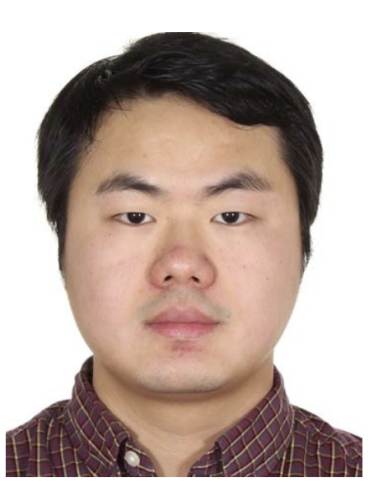 Zengling Shi received the Ph.D. degree from the University of Amsterdam, Amsterdam, in 2022. He is currently an Professor with Hefei University of Technology (HFUT), Hefei, China. He has published several articles in refereed journals and conferences, such as IEEE Transactions on Pattern Analysis and Machine Intelligence, IEEE Transactions on Image processing, CVPR, and ICCV. His research interests include machine learning, computer vision, and deep learning.
Zengling Shi received the Ph.D. degree from the University of Amsterdam, Amsterdam, in 2022. He is currently an Professor with Hefei University of Technology (HFUT), Hefei, China. He has published several articles in refereed journals and conferences, such as IEEE Transactions on Pattern Analysis and Machine Intelligence, IEEE Transactions on Image processing, CVPR, and ICCV. His research interests include machine learning, computer vision, and deep learning.Associate Prof. Shan Zhao, Hefei University of Technology, China
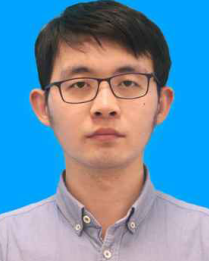
Shan Zhao received the Ph.D. degree from the College of Computer, National University of Defense Technology (NUDT), Changsha, China, in 2021. He is currently an Associate Professor with Hefei University of Technology (HFUT), Hefei, China. His research interests include natural language processing and multimodal information extraction.
Prof. Wentao Ma, Anhui Agricultural University, China
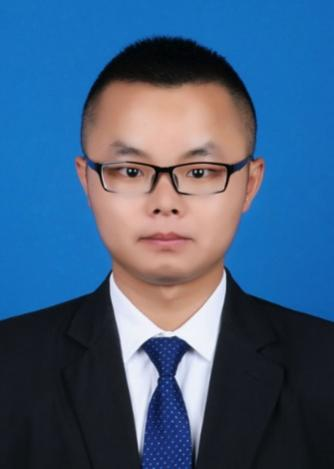 Wentao Ma received the Ph.D. degree in computer science and technology from the National University of Defense Technology, Changsha, China, in 2023. He is currently a professor with the School of Information and Artificial Intelligence, Anhui Agricultural University, Hefei, China. He has published several articles in refereed journals and conferences, such as IEEE Transactions on Neural Networks and Learning Systems, IEEE Transactions on Multimedia, and AAAI. His main research interests include cross-modal retrieval, person ReID and intelligent agriculture.
Wentao Ma received the Ph.D. degree in computer science and technology from the National University of Defense Technology, Changsha, China, in 2023. He is currently a professor with the School of Information and Artificial Intelligence, Anhui Agricultural University, Hefei, China. He has published several articles in refereed journals and conferences, such as IEEE Transactions on Neural Networks and Learning Systems, IEEE Transactions on Multimedia, and AAAI. His main research interests include cross-modal retrieval, person ReID and intelligent agriculture.To be continued

